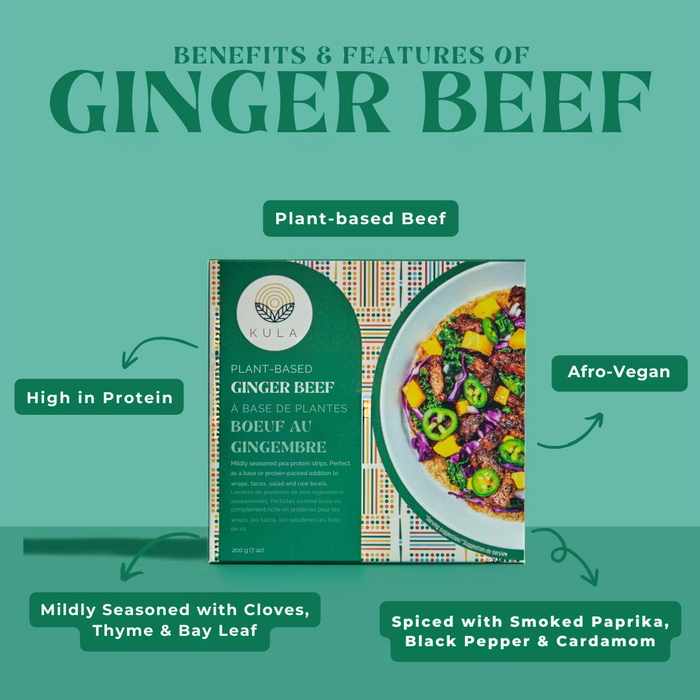Dietitian-Approved Sugar Free Sauces for Clean Eating Success
Dietitian-Approved Sugar Free Sauces for Clean Eating Success
Blog Article
All Regarding Healthy Food: Advantages of Embracing Plant Based Alternatives
The conversation bordering plant-based diet plans has actually obtained significant attention in the last few years. Lots of individuals are exploring the prospective health and wellness advantages, dietary advantages, and ecological effects connected with these nutritional choices. As individuals come to be extra knowledgeable about their food's influence on wellness and sustainability, inquiries emerge regarding the practicalities of adopting such a way of living. What details modifications can one anticipate, and how might these options reshape not only individual health yet also the planet's future?
Comprehending Plant-Based Diet Regimens
Several individuals link plant-based diet regimens generally with vegetarianism or veganism, these diet regimens can encompass a large range of consuming patterns that focus on entire, minimally processed plant foods. Such diets often consist of fruits, veggies, whole grains, legumes, seeds, and nuts, while removing or restricting pet products. This versatility allows people to customize their nutritional options according to dietary demands and personal preferences. Some might embrace a primarily plant-based diet plan while still periodically consuming meat or milk, usually referred to as a flexitarian technique. The emphasis remains on incorporating more plant foods, which can cause a varied array of tastes and dishes. Recognizing these various analyses of plant-based consuming is important for appreciating its access and charm in contemporary food society.
Wellness Advantages of Plant-Based Foods
The health benefits of plant-based foods are considerable, using a nutrient thickness benefit that supports total wellness. Research shows that these foods can improve heart health and wellness and play a crucial role in reliable weight management. By incorporating a lot more plant-based alternatives, people may improve their nutritional options and promote long-lasting wellness.
Nutrient Thickness Benefit
Nutrient thickness plays an essential function in the health and wellness advantages of plant-based foods, making them a compelling choice for those looking for a balanced diet. Plant-based foods, such as fruits, vegetables, legumes, nuts, and entire grains, are often rich in essential vitamins, minerals, and anti-oxidants while being reduced in calories. This high nutrient thickness permits people to take in fewer calories while still satisfying their nutritional demands. In addition, these foods are loaded with dietary fiber, promoting gastrointestinal health and assisting in weight monitoring. By incorporating nutrient-dense plant-based options, customers can improve their general health and wellness, support their body immune systems, and minimize the risk of chronic diseases. Eventually, the nutrient thickness of plant-based foods highlights their significance in a health-conscious lifestyle.
Heart Wellness Enhancement

Weight Management Assistance
Along with promoting heart wellness, a plant-based diet plan can considerably assist in weight monitoring. This nutritional technique emphasizes entire foods such as fruits, vegetables, vegetables, nuts, and entire grains, which are typically reduced in calories and higher in fiber contrasted to animal-based products. The high fiber web content assists raise satiety, reducing total calorie intake. Plant-based diets are commonly abundant in important nutrients while low in harmful fats, making it simpler to maintain a healthy and balanced weight. Study suggests that people who embrace a plant-based lifestyle have a tendency to have reduced body mass indexes (BMIs) and experience even more successful weight loss contrasted to those who consume meat-heavy diet regimens. As a result, embracing plant-based choices is a calculated choice for efficient weight administration
Nutritional Value of Plant-Based Active Ingredients
Plant-based components are abundant in crucial nutrients, offering a diverse variety of vitamins, minerals, and antioxidants that contribute to overall wellness. A contrast of protein resources discloses that while pet items are frequently considered as premium, several plant-based choices offer adequate protein and other beneficial compounds. Recognizing the dietary worth of these ingredients can aid people make informed nutritional selections.
Crucial Nutrients in Plants
Nutrient-rich ingredients found in plants offer a diverse selection of crucial nutrients that add substantially to total health. These components are abundant in vitamins A, C, and K, read review which sustain immune function, vision, and blood clot, specifically. In enhancement, plants supply crucial minerals such as calcium, potassium, and magnesium, critical for heart wellness, muscle mass feature, and bone toughness. The existence of fiber in plant-based foods aids food digestion and promotes a healthy gut microbiome. Anti-oxidants, discovered perfectly in fruits and veggies, aid combat oxidative stress and reduce swelling. In addition, numerous plant foods are reduced in calories yet high in nutrients, making them an exceptional selection for those looking for to maintain a healthy and balanced weight while ensuring excellent nutrient intake.
Contrasting Healthy Protein Resources
Protein resources differ substantially in their nutritional profiles, with plant-based ingredients offering unique benefits. Unlike pet proteins, which commonly have hydrogenated fats and cholesterol, plant proteins tend to be reduced in these undesirable components. Legumes, nuts, seeds, and entire grains are abundant in necessary amino acids, fiber, vitamins, and minerals. For example, lentils supply high protein content along with substantial iron and folate, while quinoa is a full protein, offering all 9 vital amino acids. Additionally, plant-based healthy proteins are usually come with by antioxidants and phytochemicals that sustain general wellness. The shift to plant-based protein resources not just improves dietary consumption however also lines up with sustainable dietary methods, decreasing ecological impact and advertising long-term wellness benefits.
Ecological Influence of Plant-Based Eating
As recognition of climate change grows, several individuals are checking out sustainable nutritional options that can substantially decrease their environmental impact. Plant-based eating has arised as a substantial contributor to lowering greenhouse gas discharges, which are mostly linked with livestock production. The farming of fruits, legumes, grains, and vegetables commonly requires fewer resources, such as water and land, contrasted to animal farming. Furthermore, plant-based diet plans can bring about lowered deforestation, as less land is required for grazing animals or expanding pet feed. By moving in the direction of plant-based alternatives, customers can sustain biodiversity and advertise healthier ecological communities. Overall, embracing plant-based eating not only advantages individual wellness yet additionally stands for a vital step toward environmental sustainability and conservation efforts.
Conquering Common Misconceptions
While lots of people identify the advantages of a plant-based diet plan, numerous misunderstandings frequently discourage them from fully embracing this lifestyle. A typical idea is that plant-based diet regimens do not have sufficient protein; however, numerous plant resources, such as beans, nuts, and tofu, provide ample protein. In addition, some think that this diet plan is expensive, when as a matter of fact, staples like beans, rice, and seasonal veggies can be fairly budget friendly. An additional misconception is that plant-based consuming is excessively restrictive, whereas it actually uses a diverse array of flavors and foods. Several worry that a plant-based diet regimen might lead to deficiencies, yet with proper planning, people can acquire all needed nutrients, consisting of vitamins and minerals, while appreciating a wide range of tasty dishes. Large Tips for Transitioning to a Plant-Based Lifestyle
Making the change to a plant-based lifestyle can be an enhancing experience, though it usually requires some assistance to navigate the preliminary changes. Initially, people are motivated to begin gradually, including even more fruits, veggies, beans, and whole grains right into their dishes while lowering meat and dairy usage. Meal planning is vital; preparing an once a week food selection can aid ease the adjustment and protect against last-minute unhealthy options. Checking out new dishes and cooking approaches can also keep and improve the experience exhilaration concerning plant-based consuming. Additionally, joining support groups or neighborhoods can offer motivation and share useful pointers. Finally, staying educated about nourishment guarantees well balanced meals, avoiding shortages while cultivating a healthy and balanced, rewarding plant-based way of living.
Delicious Plant-Based Meal Ideas
Exploring delicious plant-based dish ideas can inspire people to embrace a much more nutritious diet. One preferred alternative is a passionate quinoa salad, including cherry tomatoes, cucumber, and a vibrant lemon-tahini dressing. Another fave is a mouthwatering lentil stew, loaded with carrots, celery, and fragrant natural herbs, excellent for a calming supper. For morning meal, overnight oats made with almond milk, chia seeds, and covered with fresh berries supply a nourishing start to the day. Furthermore, a dynamic veggie stir-fry with tofu and a range of vivid veggies can be a quick yet pleasing dish. Finally, luscious avocado salute on whole-grain bread, sprinkled with seasonings and seeds, provides a basic yet tasty treat. These meals showcase the range and splendor of plant-based eating.

Often Asked Concerns
Can a Plant-Based Diet Give Sufficient Healthy Protein?
The inquiry of whether a plant-based diet can provide adequate healthy protein is usual. Various sources, consisting of beans, nuts, seeds, and whole grains, can meet protein needs properly, supporting a nutritious and well balanced diet regimen for individuals.
Are Plant-Based Diets Appropriate for Kid?
The suitability of plant-based diets for children depends upon mindful planning. Ample click for source nutrients have to be ensured, including minerals, vitamins, and proteins. With correct advice, such diet plans can sustain healthy and balanced growth and development in kids.
Exactly how Do I Eat in restaurants on a Plant-Based Diet plan?
Eating in restaurants on a plant-based diet regimen includes looking for restaurants with varied menus, asking for modifications, and exploring vegan-friendly alternatives. Planning in advance and interacting nutritional choices can improve Read Full Report the eating experience while preserving dietary selections.
What Prevail Allergens in Plant-Based Foods?
Typical allergens in plant-based foods include soy, gluten, nuts, and seeds - Sugar Free Sauces. People following a plant-based diet ought to understand these allergens and check out tags meticulously to avoid negative reactions and ensure safe usage
Can Plant-Based Diets Aid With Weight Loss?
Study indicates that adopting a plant-based diet regimen might facilitate weight management due to its commonly reduced calorie density and higher fiber material. This combination can enhance satiation, helping people handle their calorie intake successfully. Several people link plant-based diet regimens mainly with vegetarianism or veganism, these diets can encompass a vast variety of eating patterns that focus on entire, minimally processed plant foods. Nutrient thickness plays an essential function in the health and wellness advantages of plant-based foods, making them an engaging option for those seeking a well balanced diet regimen. Plant-based diet regimens have actually been revealed to considerably boost heart health, as they frequently include elements that sustain cardio function. In enhancement to promoting heart health, a plant-based diet regimen can considerably assist in weight monitoring. An usual belief is that plant-based diets lack enough protein; however, countless plant resources, such as vegetables, nuts, and tofu, give ample protein.
Report this page